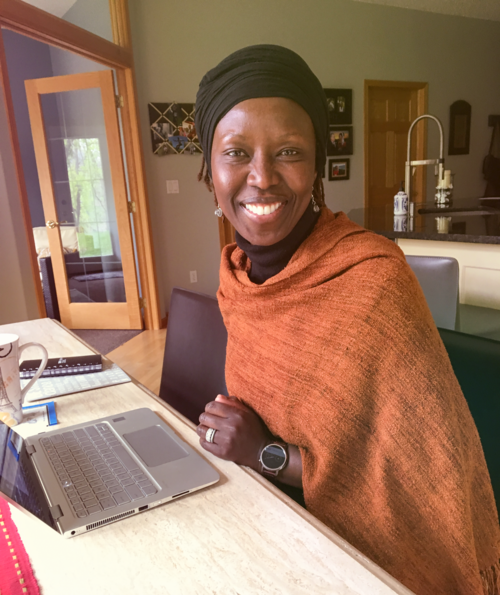
Hellerud
Miranda wakes around 7 a.m., then gets her two kids, Zeke and Elly, ready for the day and drops them off at the child development center downstairs at the JP Fargo-Moorhead residential facility she calls home by 7:30 a.m. She then heads back upstairs to get herself ready for school. On a busy day, her first class starts at 9 a.m., followed by work at 10 a.m., and then she drives back to campus for additional classes until 4:45 p.m.—with no time for lunch—before rushing to pick up the kids before the center closes at 5:30 p.m. Evenings are filled with quality time with the kids, making and eating dinner, managing the nightly routine, and putting them to bed by 8 p.m. Only then does she tackle schoolwork, bills, cleaning, and other responsibilities, finally going to bed around midnight.
Miranda is not alone. According to the Institute for Women’s Policy Research, in America today, more than 4.8 million college students are also raising children. Nearly a quarter of them are single parents, largely women of color. Yet, our higher education systems and public policies remain squarely focused on the “traditional” student: young adults living on campus, free from caretaker responsibilities. This gap is a crisis that must be confronted.
Student parents are not struggling due to lack of ambition or intellect. They struggle because the system was never designed to support them. As they pursue a degree and work to create brighter futures for themselves and their children, they face extraordinary obstacles: a lack of affordable child care, rigid class schedules, and limited financial aid. These foundational barriers force many to abandon their studies.
Without policy and structural support, no amount of personal grit can close the gap. Supporting these students requires more than platitudes. It means investing in these families with on-campus child care, expanding flexible and hybrid learning options, rethinking financial aid eligibility, and removing stigma. It also means listening to their voices and allowing their lived experiences to shape policy and practice.
What real commitment looks like
At the institutional level, colleges can play a huge role in supporting student parents by designing flexible attendance policies, scheduling classes outside 9–5 hours, offering on campus child care, and providing emergency aid and mental health resources tailored for parents. At the state and federal levels, lawmakers should enhance and expand policies that include child care subsidies, wrap around benefits, and loan adjustments for student parents.
This is more than support — it’s a smart public investment. According to the Center on Equity in Higher Education, when single mothers earn degrees, they are significantly less likely to experience poverty and more likely to contribute further to our workforce and economy — paying nearly $82,000 more in taxes over their lifetimes and requiring far less public assistance.
The stakes couldn’t be higher
Student parents aren’t just studying — they’re dreaming and redefining what’s possible for their families. They already outperform the expectations society’s set for them. The stakes are so much higher for these students; they have so many responsibilities, including the lives of the children who depend on them. On average, student parents have about twice as much student debt as their non-parenting peers. That’s probably why they work so hard at home, their places of employment, and at school: Student parents generally have higher GPAs than other students. But their success shouldn’t rest on personal heroics alone. If we truly value education’s power to transform communities, then supporting student parents must shift from optional to required.
Students like Miranda — balancing classes, work, and raising Zeke and Elly — show us what resilience looks like every day.
Let’s center policy on who’s doing the work
Empowered moms are the future. Institutions and policymakers must not only listen to student parents but actively include them in policy design and governance. They are experts in their lived experience; we owe it to them — and to future generations — to have them shape policy.
Hellerud is the executive director of Jeremiah Program’s Fargo-Moorhead campus.

